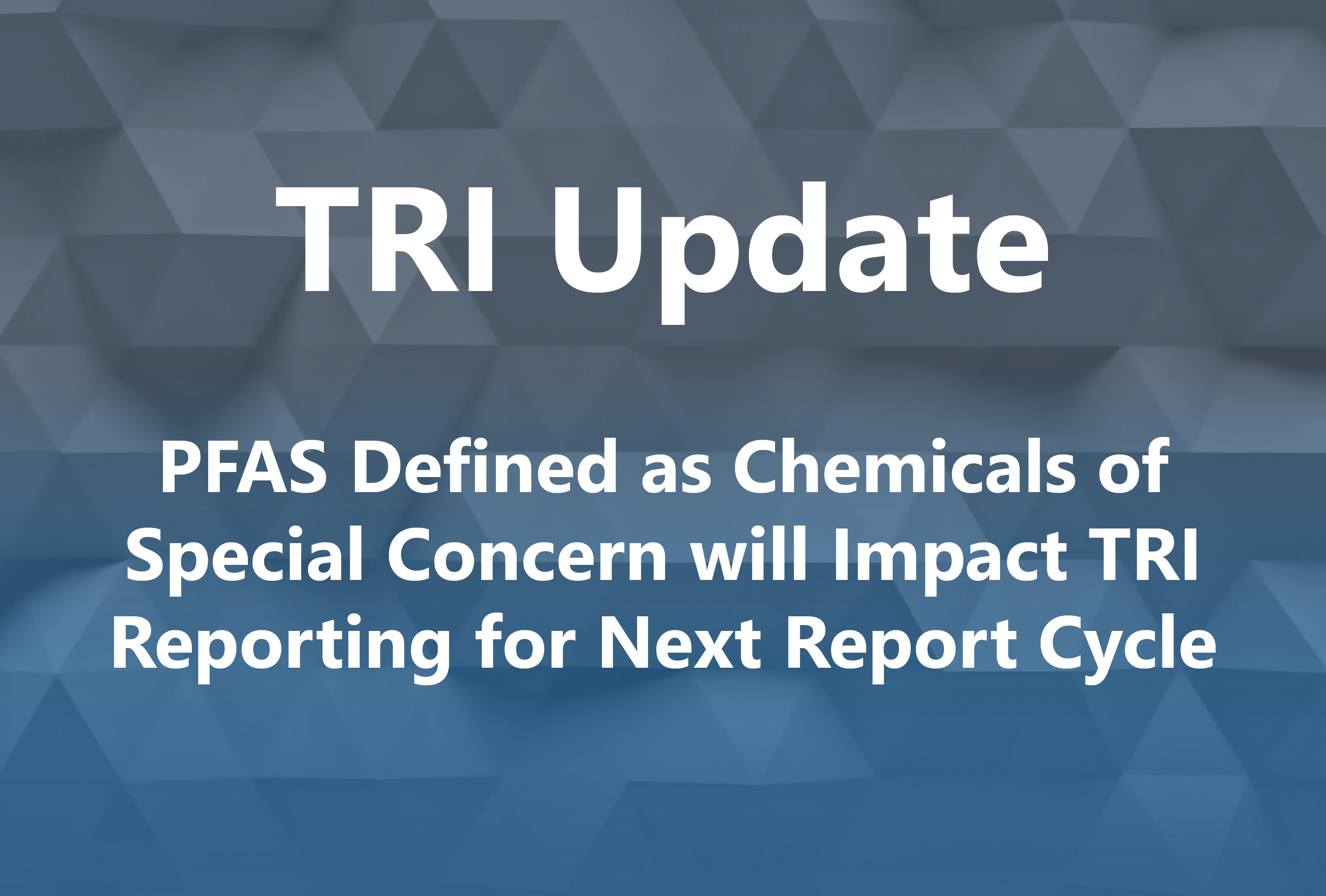As most of us know, the TRI reporting cycle for RY23 closed on July 1, 2024. However, a recent regulatory change will impact the TRI reporting of PFAS for next year and TRI reporters should understand how this may impact their reporting obligations.
In November, the U.S. Environmental Protection Agency (EPA) designated PFAS subject to TRI reporting as chemicals of special concern. This rule change eliminates the de minimis exemption for reporting of per- and polyfluoroalkyl substances (PFAS) to the Toxic Release Inventory (TRI – aka Form R reporting).
For the 2023 TRI reporting cycle, TRI reporters were able to take advantage of a de minimis exemption which allowed many industries to avoid reporting of PFAS if it was present in materials/products in concentrations less than 1%. The new rule change and designation of PFAS as a “chemical of special concern” eliminates this reporting loophole and requires reporting of PFAS when manufactured, processed, or otherwise used in a quantity exceeding the 100-pound activity threshold, regardless of concentration.
The new rule also impacts suppliers of chemicals who will now be required to report PFAS even when present at concentrations of less than 1% in their products.
The TRI rule is applicable to the 2024 reporting year (reports due July 1, 2025). Click here to view the EPA reporting changes.
Since PFAS are present in many products/materials at low concentrations (less than 1%), the rule change will impact TRI reporters and material suppliers who previously were not required to report PFAS information in their annual TRI reports. As a result of these rule changes, clients may have significantly expanded due diligence and reporting obligations in 2024/2025.
EnSafe can help companies to better understand the impacts of these changes related to their TRI reporting obligations and assist in the actual preparation of TRI reports and associated information gathering.
Contact our experts with technical or regulatory questions regarding TRI compliance.
